Ahh… one short.
This should have been my eighteenth weekend wrap. How crazy would have that worked out!?
I have been feeling all the feels this last week because as I write this my daughter is off to school on her eighteenth birthday. All grown up and my legal obligations as a parental unit caregiver done, I now get to lean back and consider what remains of the moral obligations and how to navigate being the parent of an adult. So weird.
This weekend was busy in relation to all that.
Friday I added to my rewatched list My Neighbour Totoro, one of the more famous of the Ghibli films, a list that got a little bit more important since we officially scored tickets to the Japanese park in a few months. Refreshing the sights and sounds of these films in my head will add to the enjoyment of the visit, I presume.
Saturday rolled in and The Kid (I guess it was the last weekend I can call her that, huh?) and I scooted over to Starbucks. She had an essay to work on. I had my regular writing vibe going on. Her fancy coffee cost literally three times as much as mine. Yikes.
The in-laws showed up unexpectedly with the intention of taking The Kid for a pre-birthday lunch, so we tagged along for that. It was more a brunch, by her request, which only means I trained her well enough these las eighteen years to respect the most important meals of the day.



We scooted over to West Edmonton Mall for a few hours on Saturday afternoon. We’re not casual shoppers, to be honest, so it was more a mission trip to find The Kid her birthday gift. I wandered and took photos and met the gals back at the bubble tea store.
Following a dinner of sushi from the mall, we trekked downtown to start the theatre season. We are seasons tickets holders for the Citadel and our first play of 25/26 was an adaptation of Life of Pi, which was phenomenal.
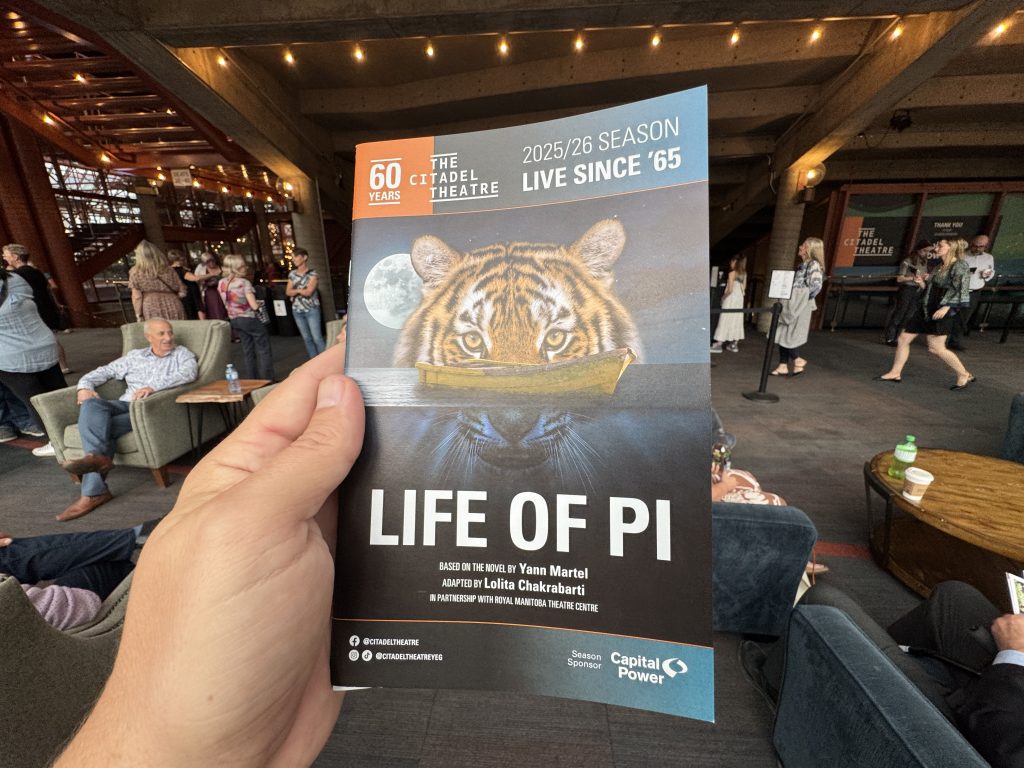


Sunday I led the crew on a twelve klick run. I am officially in training for my race in a little over a month, which means inching my distance back up to a ten miler equivalent. It’s completely do-able, it’s just been a few months since I’ve run more than ten klicks. Autumn was definitely showing its colours.
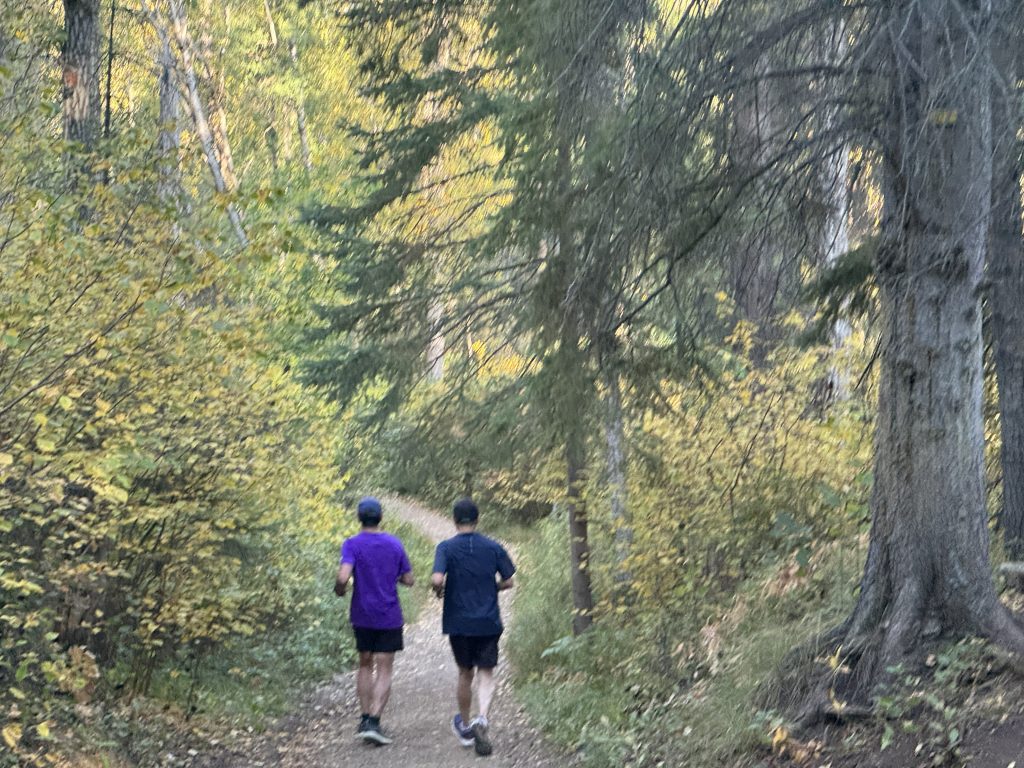
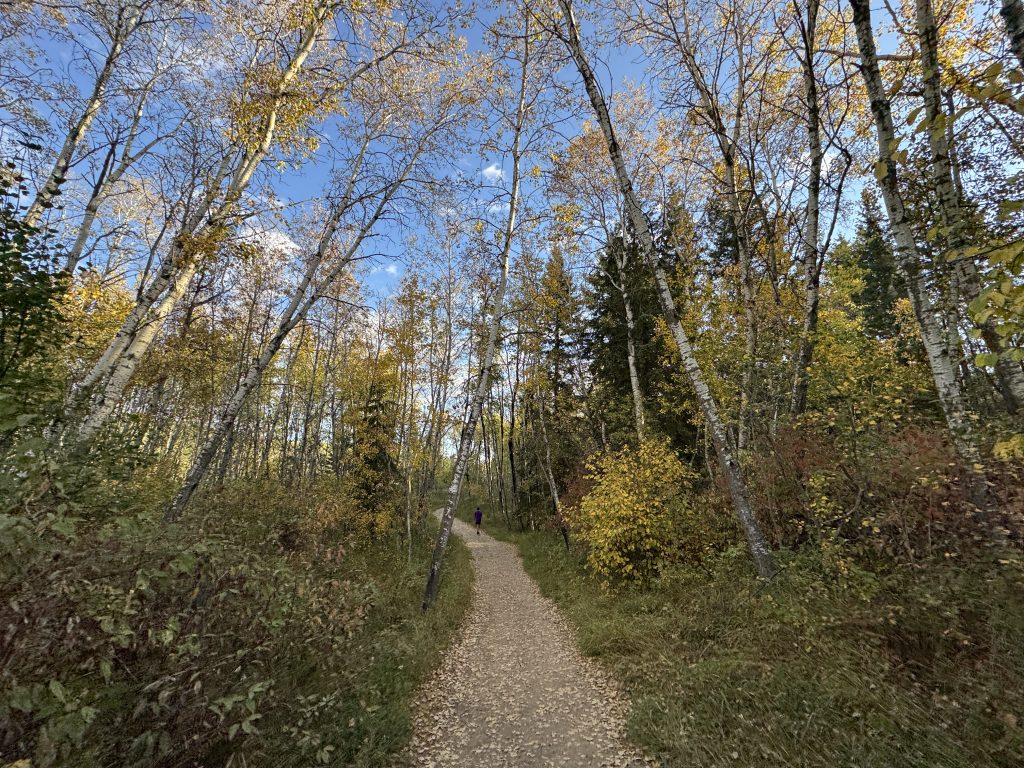

The Kid had a friend over to watch a movie for her class, so I went for a stroll and bought the ingredients for my gag gift for her eighteenth. Where we live, eighteen is the age of majority which means she can technically buy booze and cannabis and vote and gamble, all legally. I bought her some scratch tickets and a bottle of the most barely-a-wine wine I could find and a goofy card. Oh, dad.
I made dinner and we cleaned up and settled into a chill evening. Our last evening as parents of a “kid” was spent doing the most parent of things: sitting on the couch, watching tv, helping her with her homework, and going to be at a reasonable hour.






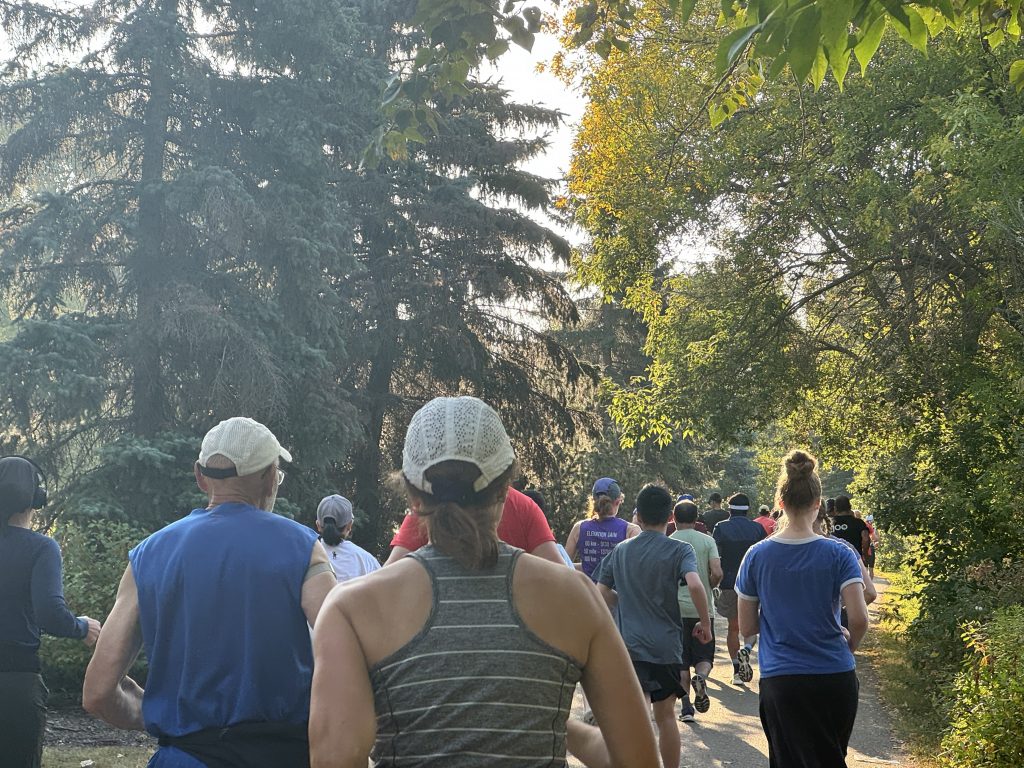
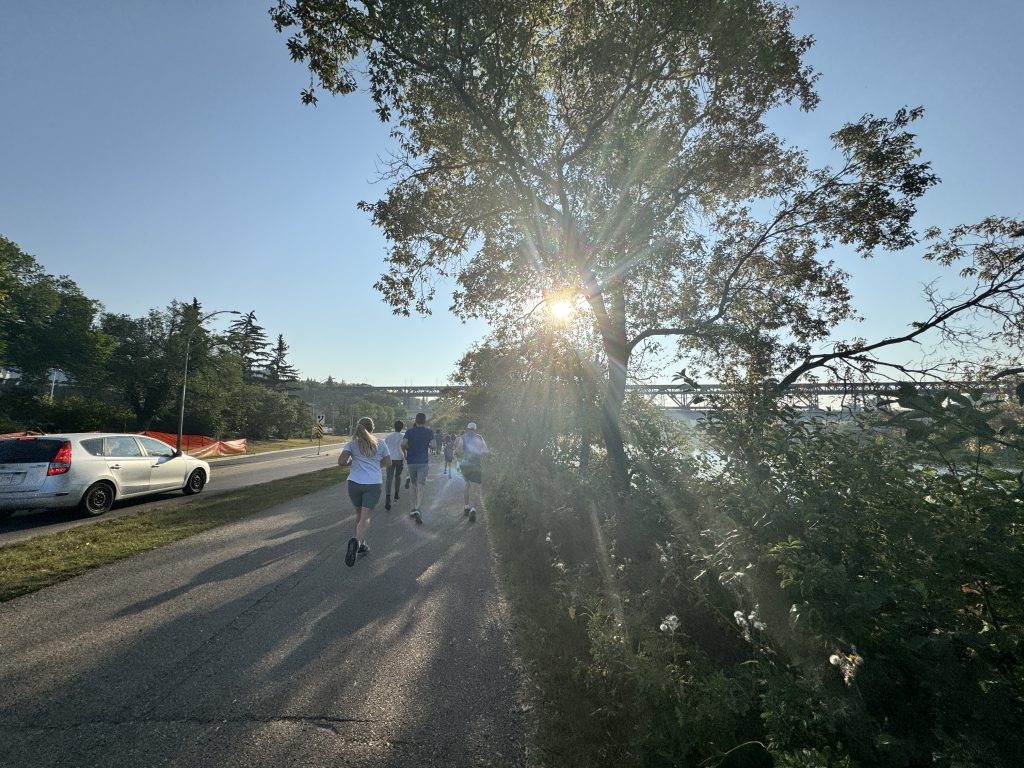






You must be logged in to post a comment.